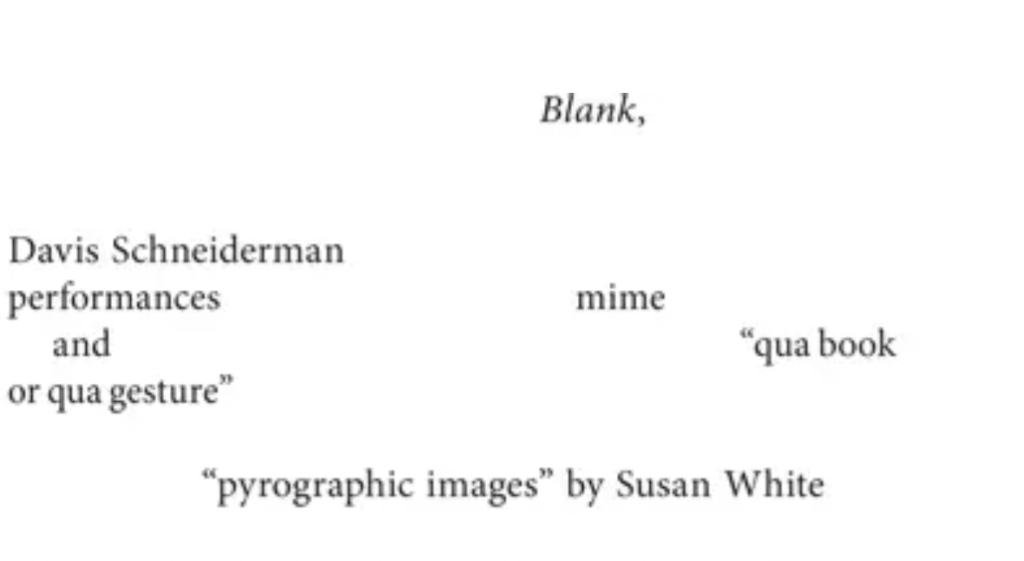
Brooklyn Rail (write-ups)
Harry Mathews’s The Solitary Twin
(06/07/2016)
During the years I was pursuing my graduate degree in creative writing at Columbia University, Harry Mathews was a beloved mentor, and in the years since, as I’ve been faculty at The New School graduate writing program, he has been not only a mentor, but a colleague and a friend.
Ok, actually, I did overlap with Mathews at Columbia University and at The New School, but I never took a class with him, and I never talked to him. I don’t know that I ever even met him, which seems impossible, but there it is.
And then there is, as well, the above: the mentorship, the friendship, the other life. It never happened, and yet it has influenced me: and in this moment, it influences me deeply. Consider any given instant, and we are half, perhaps more than half, personalities born of experiences that never happened, that will never happen. We are fantasies and wants and lies and misrememberings, and denials and misplaced emotions and ideas…
Life Imitating Art
Alexandra Chasin’s Brief
(01/13/2013)
We look at art in context, but what about people?
Of course, during a trial, we hear about the childhood, the hours alone, and the alcoholic step-parent, etc. And maybe that mediates our decision-making in the sentencing phase. Or maybe not. Regardless, we don’t look at history; we don’t say—we were invading such-and-such a country at that moment, or we were dropping bombs on so-many innocent civilians that morning so talking about the theft of, let’s say, a television, is beyond absurd. That, oh monstrosity, would be the Charlie Manson argument. Defense by hypocrisy. American culture cannot allow the “you are hypocrites” justification of crime—it would make for the end of criminal liability. Whether you’re talking about the crimes of the I.R.S., the crimes of the A.T.F., the crimes of the U.S. Federal Reserve, the crimes of the U.S. military, we’re societally too guilty, if innocence is the prerequisite for judgment, to judge anyone.
And art? Oddly enough, the context of art is historical, not personal. Nobody says, “This is a black painting because so-and-so was three months behind in his rent when he made it.” Or rather, the argument is much more likely to be, “so-and-so’s black series of paintings are directly related to the the U.S. military mining of orphan playgrounds in such-and-such-a-country.”…
Blank
(06/08/2011)

Elka Krajewska BOUND: a projected walkthrough by Elka Krajewska, light score by Anthony McCall, sound score by Bunita Marcus
(04/12/2008)
Lehman Maupin Gallery, April 12, 2008
In the American experience, scale is all. A big land to conquer. Big dreams to tear out of the world. Big egos, big defeats, big victories. Beyond the American spectrum, scale will more often flitter beyond the spotlight; a thought, an instinct, a budget. Within America, the inclination is to weigh scale—the big novel, the huge public-works installation—as the very soul of the endeavor.
Through this perspective, Americans measure themselves, their arts. We enlarge popular personalities to the scale of the universe: stars. In balance, we harbor our personal insecurities; we fear we are little more than cells, shuffling over a planet, which is itself hardly more than a pixel…
Judith Vivell
(12/01/2007)
Hoorn-Ashby Gallery
November 8 – 26, 2007
Where John James Audubon looked into the avian eyes of faraway migrations and lands unknown, Judith Vivell looks into the eyes of birds looking back. As of 2007, the cartographies of their homelands and chromosomes are drawn; their wild lives are cuffed by anklets with microchips, and their mystery has been thoroughly dissected. The future science of birds, of birdwatchers, is a diminishing frontier, as is the natural home of the flighted population. Vivell’s subjects stand not so much on the threshold of vast wildlands, as they stare out onto a burgeoning frontier of suburban sprawl. Their eyes no longer retain the enigma of the natural world—a boundless expanse beyond the outposts of human civilization—but a fear, a resignation to the end of Green earth. Contrary to naturalist illustration, Vivell’s birds look out at us—standing in the gallery with our cell phones in our hands—and they are afraid. They know that the worlds behind them are shrinking and flat, and they are deadpan returning the gaze of their predators, their executioners—and they are waiting…
Spacificity
(06/24/2006)
“What a Great Space You Have…”
Luxe Gallery June 24 – July 29
One can be anywhere in the world, in Havana, in the American Southwest, and come up with the realization, the impossible realization, that “I’ve been here before.”
After many minutes of struggle—how could that be true?—the reality trickles to the surface. The space is familiar, but not because of a previous visit; it is familiar through a movie, a television show, an advertising campaign.
We travel far and wide, searching for sanctums. We dedicate ourselves to peaceful bedrooms, lively living rooms—all in pursuit of a satisfying individual life. But nowhere are we alone…
Dallam-Dougou’s New Destiny (Jumbie Records)
(06/01/2004)
In 2003, Raul Rothblatt, a Brooklyn-based composer active in musical theater, Hungarian folk, and world music, made a pilgrimage to see the Sosso Bala, an eight-hundred-year-old xylophone that once belonged to Sundiata, the greatest emperor in West African history. Part musician, part cultural ambassador, Rothblatt, along with Guinean Abou Sylla and five other Westerners, traveled to eastern Guinea, not far from Mali, to pay homage to this holy grail of a xylophone.
The result was the formation of the band Dallam-Dougou: dallam meaning “melody” in Hungarian, and dougou meaning “land” in numerous West African languages. With wit and vibrancy and the occasional tumult, Rothblatt, the group’s founder and primary composer, has brought the entirety of his classical, jazz, and Hungarian training to the chronicle, demonstrating how music can bring solidarity to people from vastly different cultures. The nine tracks on the group’s debut release explore genres ranging from a Moroccan/Susu invitation to party (“Oy Yoy Yoy”) to a Gypsy/Turkish/West African dance tune (“Mahala a la Mandingo”), to Bach’s Cello Suite #1, recast with the addition of a West African flute. Rothblatt’s melodies are buttery and rhythmic. The sense of the live performance remains paramount in all of Rothblatt’s recordings, and listeners will revel in his soufflés of musical experience. The title track, “New Destiny,” features the highly regarded vocalist Malian Abdoulaye Diabate, who, in traditional manner—exquisite yet pounding—recounts and improvises upon the experience of a Western band of musicians in Africa…
The Anti-Matter of George Orwell
(03/01/2004)
Christopher Hitchens, Why Orwell Matters (Basic Books, 2002)
George Orwell matters because he not only coined the term “Cold War,” but because he’s been the champion of Cold War propaganda since 1947.
Of course, despite his title, Christopher Hitchens won’t tell you that. Indeed, he makes no effort to address the question of Why Orwell Matters. More in keeping with his trajectory is the United Kingdom title, Orwell’s Victory, the imperialist boast of which Hitchens was right to suspect might not play too well in the United States.
For that matter, Orwell’s Victory probably wouldn’t have played too well with Orwell himself. To quote Benedict Nicolson in 1953, Orwell “was always rounding on his own side on the eve of victory, calmly pointing out that the glorious advance was only another sort of retreat: a retreat, as he would put it, from the truth.”…
A Game of Risk
(12/01/2003)
The New Great Game: Blood and Oil in Central Asia
Lutz Kleveman
Grove Atlantic, 2003
What’s the next hotspot? Where will it be? A remote country in the Middle East? In Central Asia? What war will drive the journalists of the world to uncover the story? Will it be the diamond mines in Africa? Will it be simple starvation, somewhere else? Where will suffering suddenly erupt, disturbing the placid waters of the New World Order?
Perhaps the silliest of assumptions in the present-day media is the notion of “the story.” There is the idea that unhappiness and conflict represents a sort of brushfire in the landscape of the world—one that the world’s firemen, whether they be U.N. peacekeepers, or U.S. troops, or television pundits, will rush in with their trusty hoses to quell. But the fact is, there is a troubled reality to most of the globe, and, as Lutz Kleveman points out in The New Great Game, the angry young men of Al Qaeda make up only a fraction of the rage that threatens all of us….
Joseph Coulson‘s The Vanishing Moon
(12/01/2003)
I’ve been reading The Vanishing Moon, a novel by Joseph Coulson (Archipelago Books). It chronicles the American family with enormous intensity. His sense of history is vast, his sense of detail fine, Coulson is the ferryman to that America just beyond tragic and wondrous. Nelly Reifler’s collection of stories, See Through (Simon & Schuster), is as dark and delightful as chocolate truffles. You’ll enjoy them, and feel guilty for it. And, she’s a Brooklyn native. And I recommend Natural Trouble, a collection of poems by Scott Hightower (Fordham Press). Tough-minded and elegant, Hightower is a singular balance of poetic tradition and poetic revolution. Hightower, in his second book, effortlessly demonstrates a compassion and wisdom that commands the attention of his readers.
- As published here
Regarding the Pain of Others
(06/20/2003)
Susan Sontag
Regarding the Pain of Others
Farrar, Straus and Giroux (2003)
In a media environment where all images are apportioned to partisan arguments—unreasonable and unthinking—Susan Sontag’s mission to resume a more considered meditation on photography is a noble one. Chapter 7 of Regarding the Pain of Others, which briefly addresses her 1977 work, On photography, is compelling reason to buy the book. Sontag’s recall of photographic history is staggering (although at times she provides more history than insight), and her give-and-take on the question of war photography is a stand against oversimplification. Sontag rejects the assumed arguments—that photographic documentation of tragedy/ atrocity mobilizes conscience and change, or, conversely, that photographic documentation of tragedy/atrocity numbs the conscience, and undermines change.
Even at her most convincing, however, Sontag’s own arguments are often disappointingly partial. Sontag never draws a clear distinction between media and photography, and throughout the work, her assessments waver in ever shifting focus. Whereas the effects of the image in a media polarity can be easily discerned- more ordnance in the perpetual war between the bellicose and the callow—Sontag’s model for the cause of that polarity remains fuzzy. Sontag’s distinction of the non-believability of “beauty” and “pathos,” as opposed to the apparent trustworthiness of “ugliness” and “horror,” might have provided another valuable exploration in these pages—as the removal of art from society is primary to a culture receptive to only the presupposed idea…
Paul’s Ostiary
(10/01/2002)
Paul Auster
The Book of Illusions
(Henry Holt, 2002)
David Zimmer’s family is killed in a plane crash. The loss of his wife and two sons sends him into a downward spiral of pills, alcohol, and depression. He battles the life he had until there is nothing to go back to. Suicide invites him. And then, watching an old silent film on television, he laughs.
And thus begins the second phase of Paul Auster’s tenth novel, The Book of Illusions. Zimmer, researching the lost comic who has caused in him this precious bubbling of momentary life, embarks upon a biography, the publication of which not only uncoils the mystery of Hector Mann (the lost silent comedian), but Zimmer’s grief, and the unmagical world that comes with despondency….